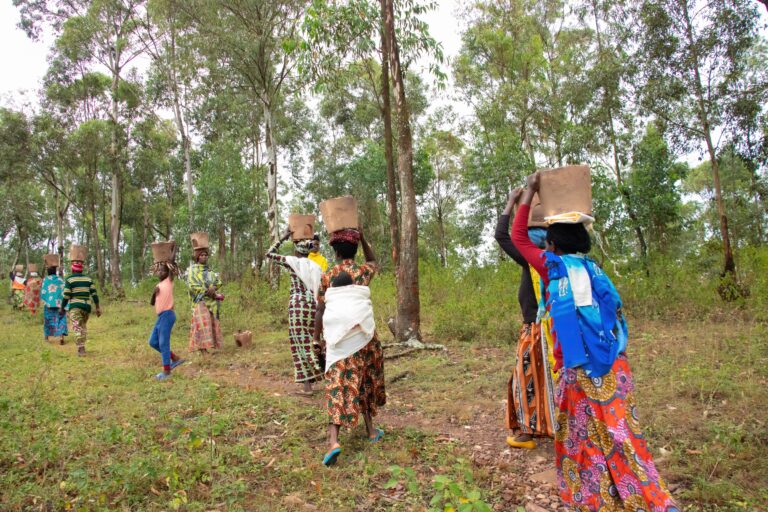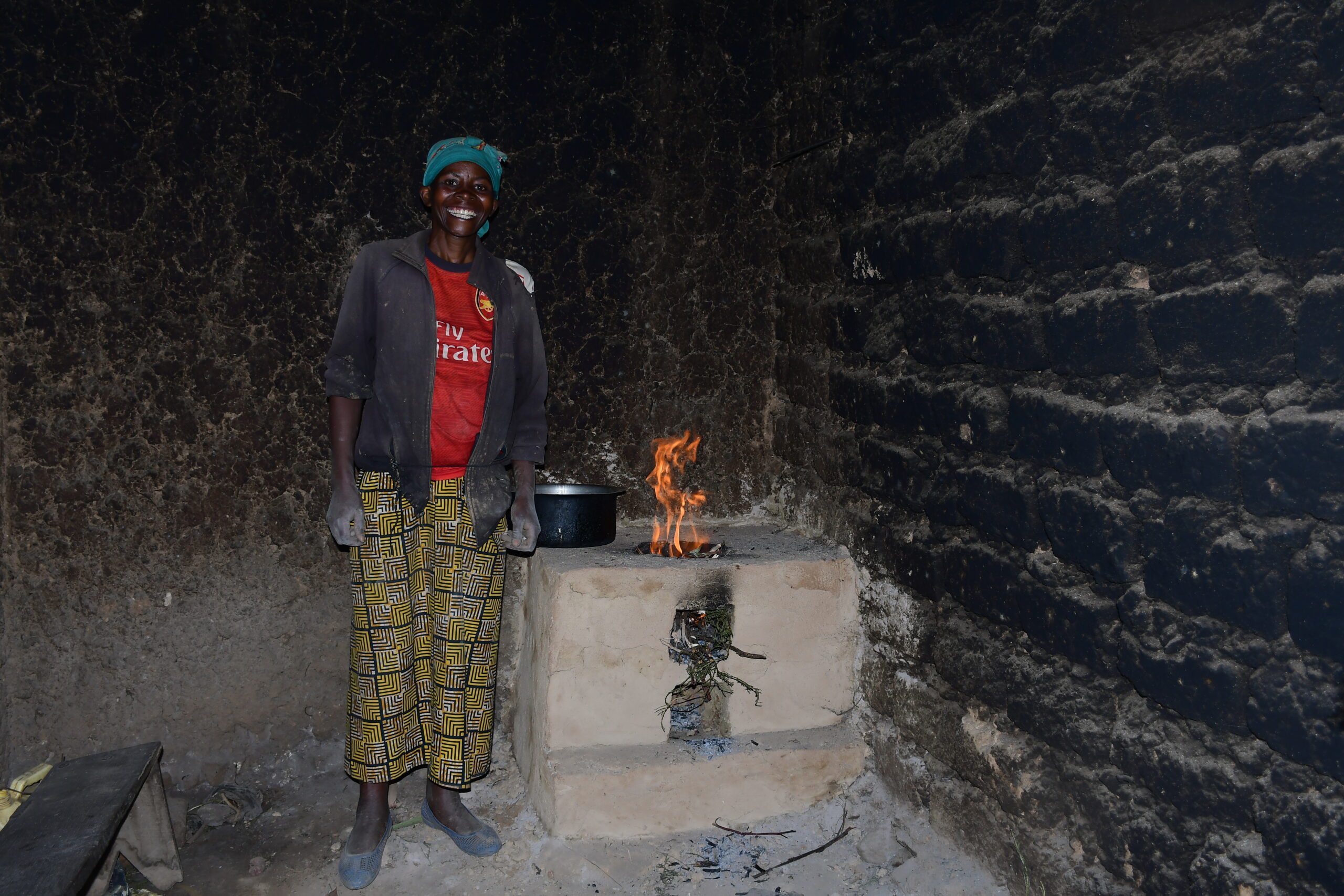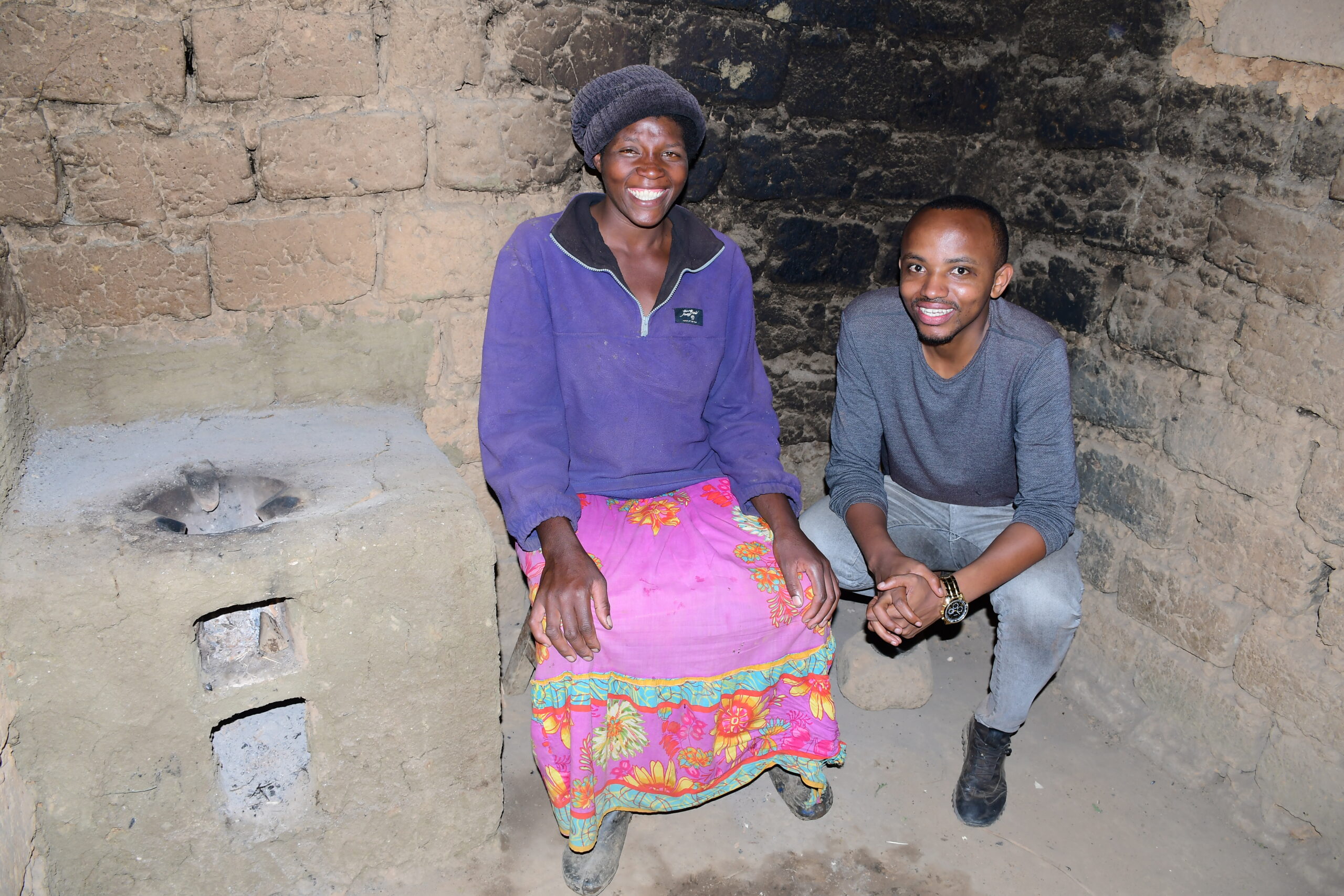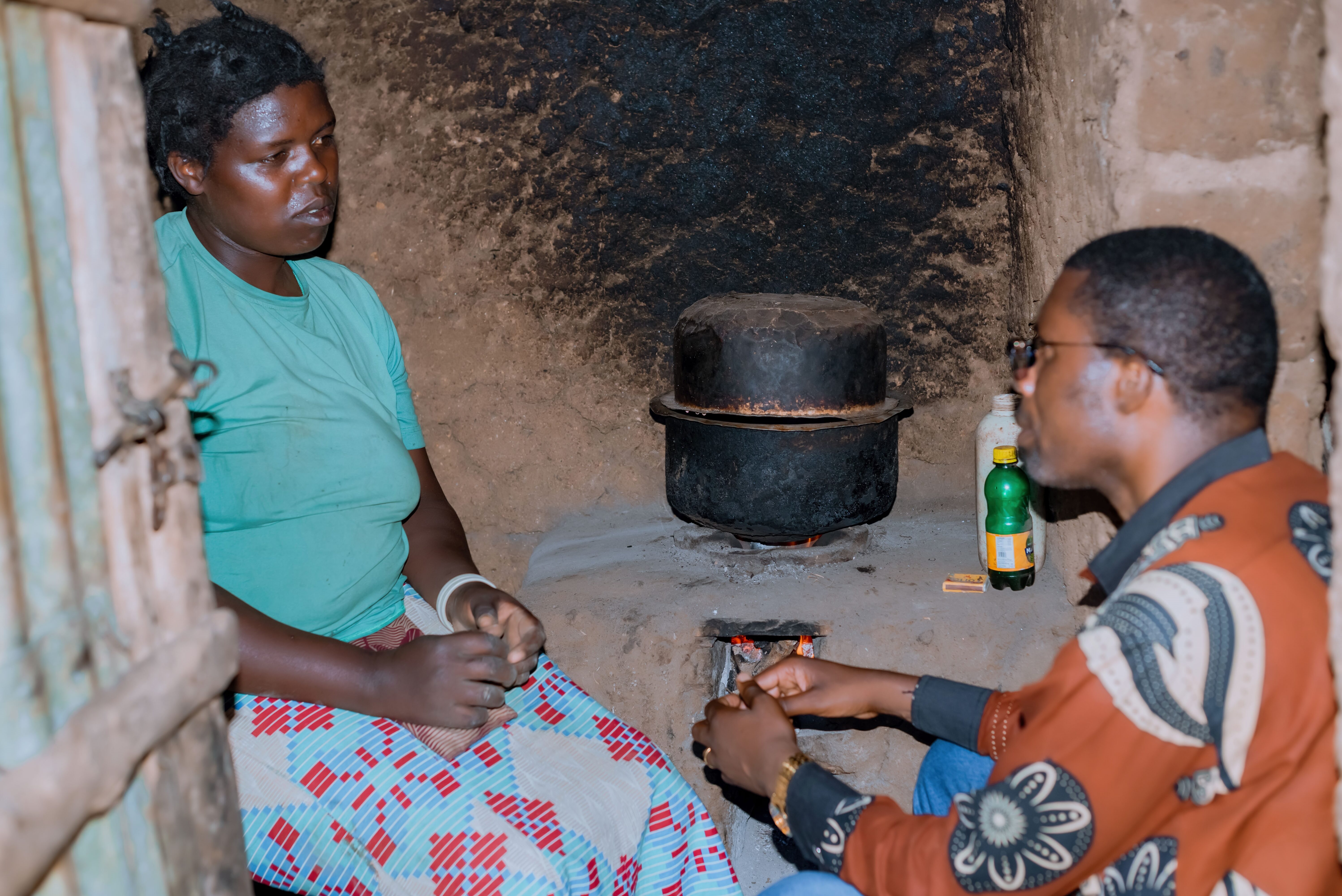Gatsibo District
In rural areas of the Gatsibo District, many households cook on traditional 3-stone fires. These fires have poor thermal efficiency and use a lot of firewood. This results in high CO2 emissions, indoor air pollution and high demand for firewood which drives deforestation.
LIKANO and Rwanda of Peace and Progress are implementing an improved cookstove (ICS) carbon offsetting project in the Burera District. The project aims to distribute 70,000 Canarumwe improved cookstoves to all eligible households in the Burera district.
The RPP improved stoves are being distributed to all sectors within the Burera district. Users are required in assisting the installation of the stove into their kitchens. The stove is more efficient than the traditional 3-stone fire and significantly reduces firewood consumption. This reduces CO2 emissions, improves the respiratory health of those in the kitchen due to less smoke and reduces the time and money spend on collecting or buying firewood.
The CO2 emission reductions will be certified by the Verified Carbon Standard.
The project technology is the Canarumwe improved cookstove. These have been designed to meet the needs of households in the sectors of the Burera district. The stoves have a thermal efficiency significantly higher than the traditional 3-stone fire and reduce wood consumption.
In addition to reducing Greenhouse Gas emissions, so contributing to the mitigation of climate change, this project will provide local benefits to communities:
• Reduced pressure on the surrounding forest with reduced deforestation and degradation of the forests and its wildlife habitat;
• Reduced soil erosion and nutrient loss as trees protect the land;
• Reduced risk of flooding in hilly areas as trees and plants on slopes soak up rain;
• Reduced poverty, as the efficient wood stove reduces annual expenditure on cooking fuels;
• Reduced indoor air pollution reducing adverse health effects associated with smoke inhalation;
• Reduced cooking and wood collection time, which will allow more time to be spent on for income generating activities, child care or education;
• Reduction in burns and injuries as the CANARUMWE Stove is safer to cook on.
Once users complete and sign the carbon transfer form, they take their stoves home, while they wait for trained experts to install the stoves in the cooking areas. Some people bring their stove home by carrying them with their heads, but others bring the stove home with bicycles.

Impact Stories

Ntawera Esther, an end user from Rwerere sector, Gacundura cell. She likes the stove very much for it uses less wood and doesn’t produce too much smoke. The stove helped her family to save time and the saved time is used for other domestic works especially taking care of her kids. We really thank you for giving us the stoves for free and fixing them in the kitchens.


The effects of this stove are so many. Normally I am responsible for collecting wood, so before I was given this wood, I used to travel looking for wood every day, but now I only go twice a week. So, this stove made me rest. Now I have found enough time to take care of my husband and my children especially this little kid I hold in my arms. Before receiving this stove, we had to light traditional stoves with our own air and this sometimes ended up becoming infected with respiratory diseases.
This stove produces less smoke. As you can see, I’m cooking but there is no smoke. My kitchen has been so smoky because of the traditional 3 stones fire, What I like about this stove is that when you have dry wood, it’s like a gas stove and it cooks really faster, Thank you for giving us this beautiful stove.
